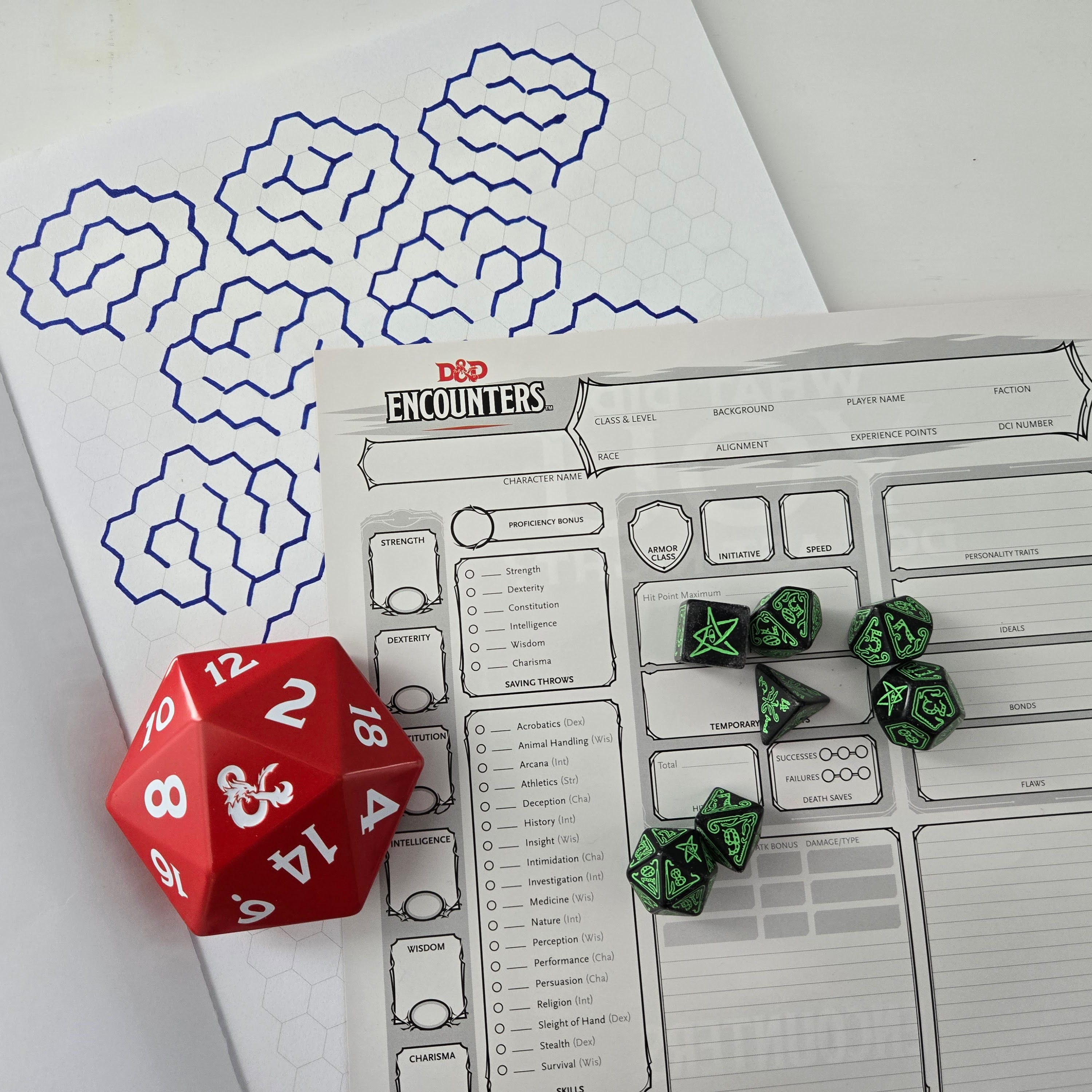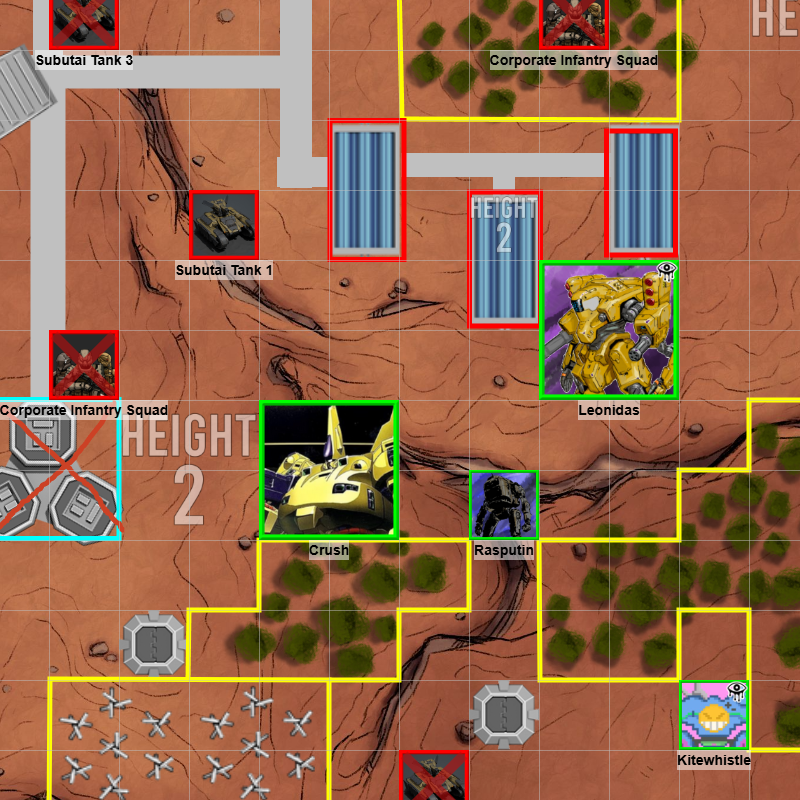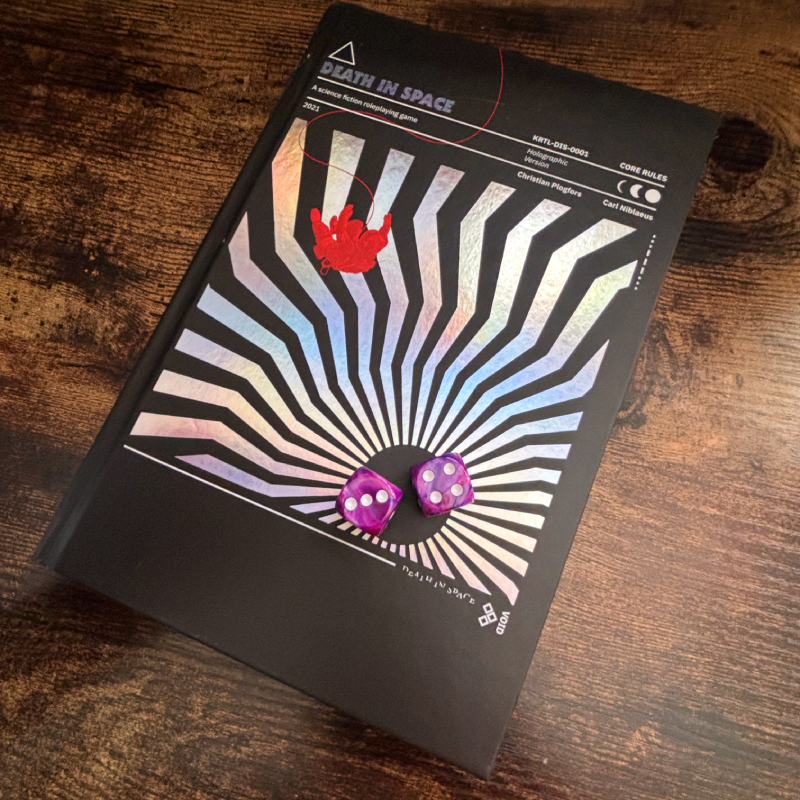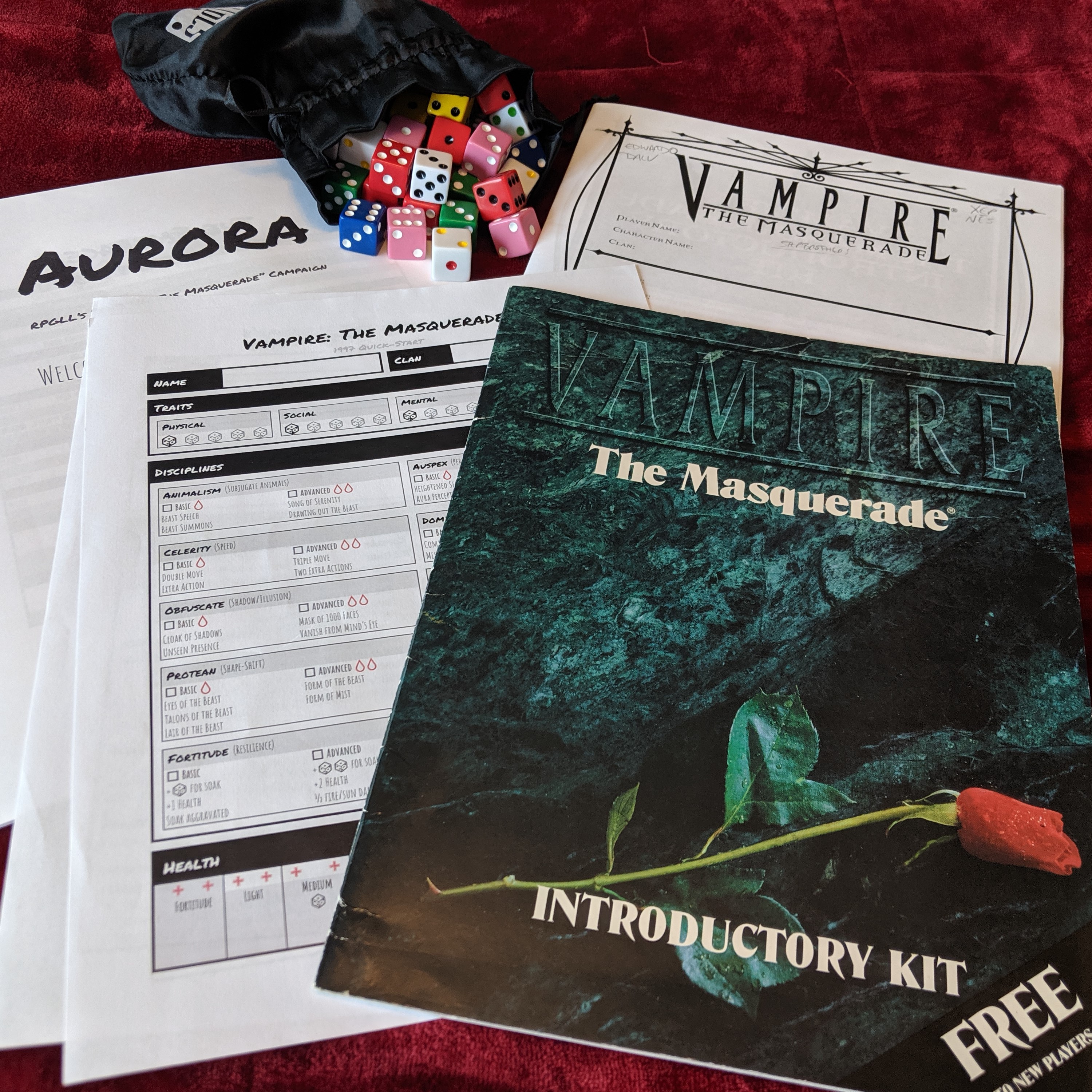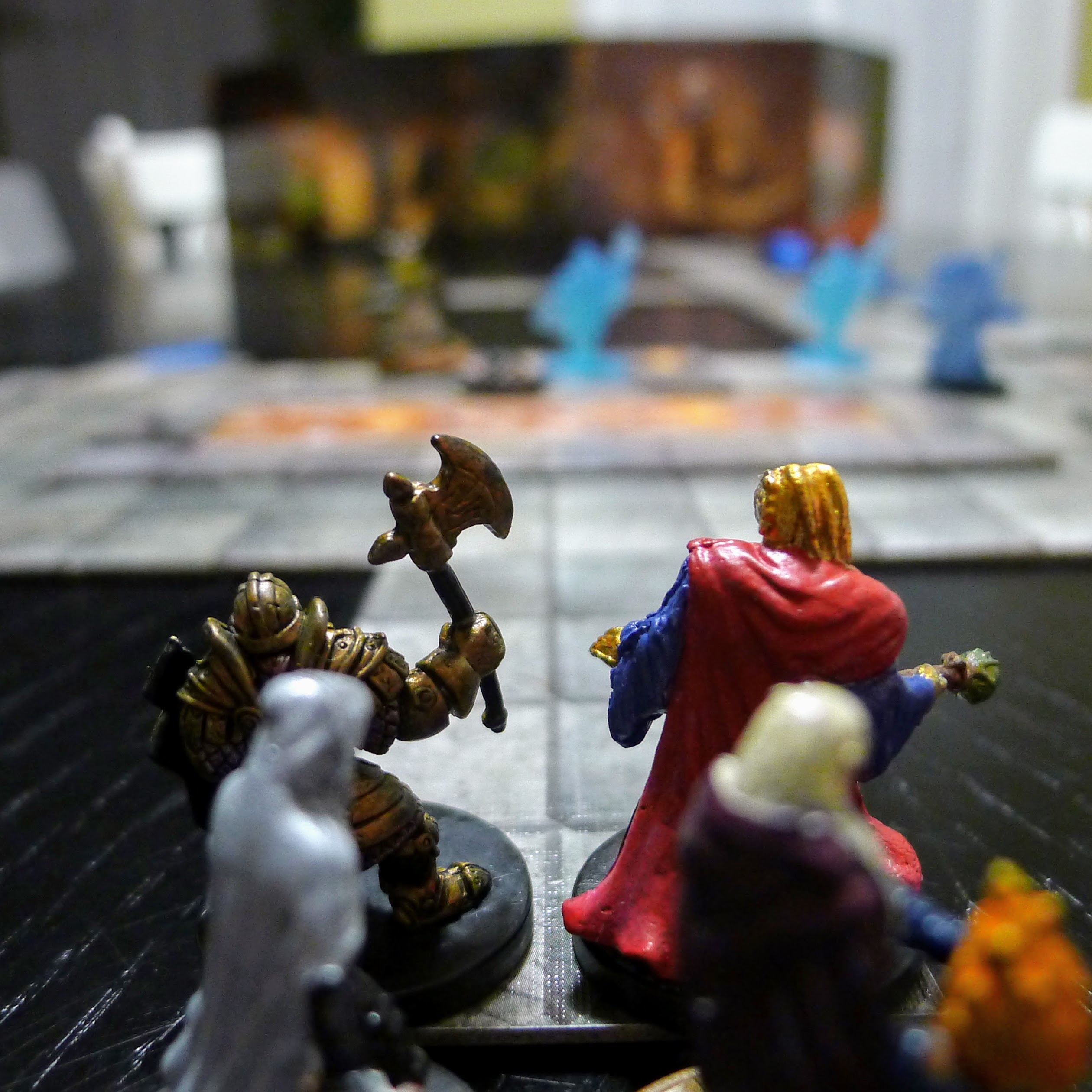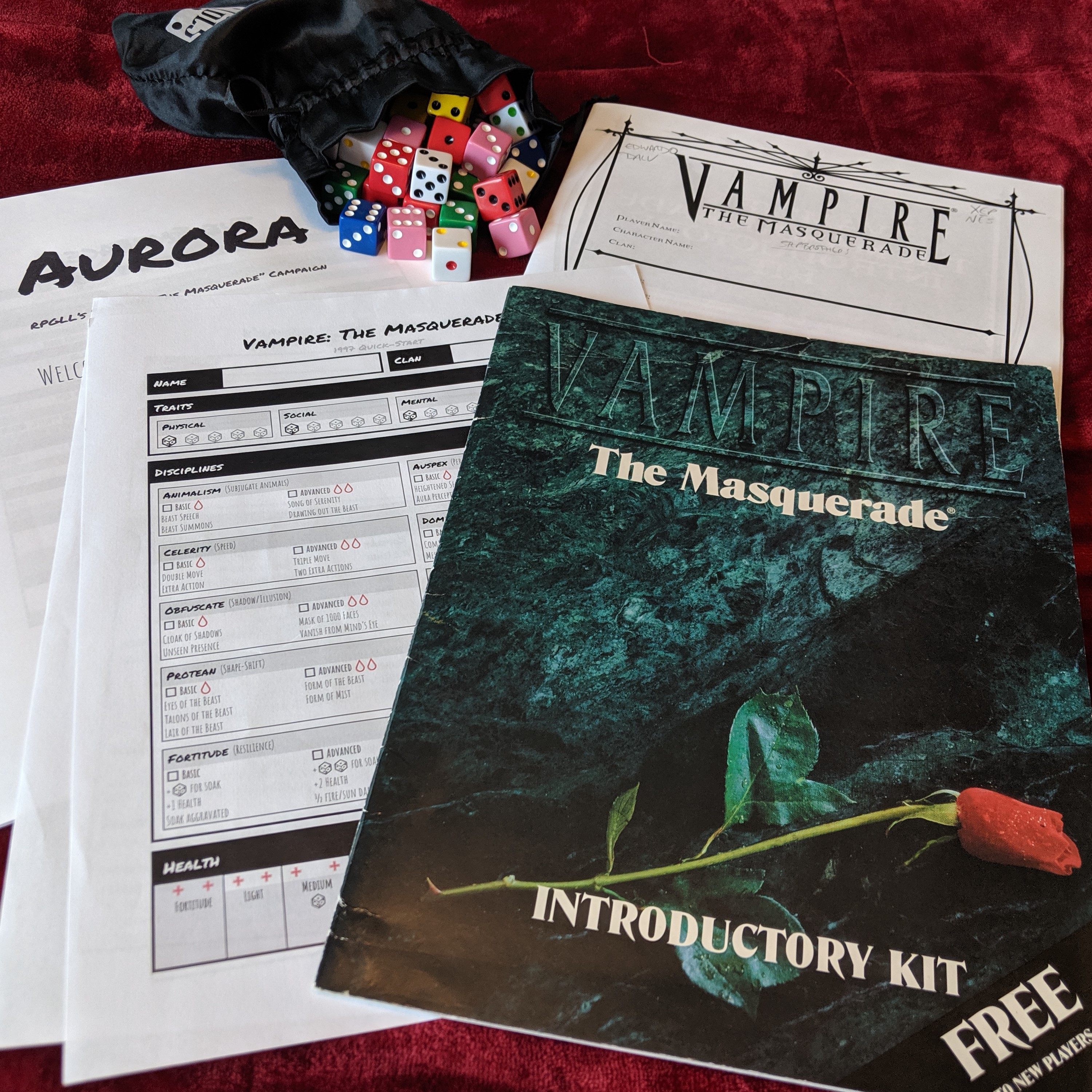[00:00:00] Speaker A: RPG Lessons Learned. When the game is over, when your players are gone, that's when lessons are learned.
Find us
[email protected].
email us at rpgllpodcastmail.com and find us on BlueSkyPGL.
[00:00:24] Speaker B: What's up, everybody? Welcome to another star studded episode of RPG Lessons Learned. It's gaming's biggest night. The stars are here. I'm Tanner, the Ryan Seacrest of gaming, and I'm here with the Brad Pitt of gaming, Dusty, what's good?
[00:00:42] Speaker A: I have never thought of myself as the Brad Pitt of gaming, but I will think of myself as such going forward.
[00:00:48] Speaker B: Um, I was just trying to do something fun with the intro. You know, add some energy to the. To the old system. So, Dusty, you have been gaming while other people have been in Hawaii. You told me.
[00:01:01] Speaker A: I. I did, yes. My wife and, uh, a friend of hers, um, were in Hawaii, and I'm really good friends with that friend's husband.
So the dads got together and got our kids together, and I ran a hex dungeon for my friend's two daughters. My friend and then my daughter.
[00:01:23] Speaker B: That is so cool. We've talked about hex dungeons before, dear listener. Um, that's sort of the idea of abstracting a dungeon map into more of a hex crawl kind of map. You can read my hex dungeon manifesto that I will undoubtedly link in the description to get the gist of it. But, yeah, it's a concept we've talked about before. I've used it with my group before. But is this your first time running a hex dungeon with another group? Group?
[00:01:52] Speaker A: Let me think about that for a second.
[00:01:55] Speaker B: Or. You ran a Christmas one, didn't you? The Christmas one? Yeah.
[00:01:58] Speaker A: I ran a Christmas one for strangers online, and I've run this dungeon here, which I'm sharing my screen. This will only help you, Tanner. Obviously, it won't help the listeners at home. I ran this dungeon also for some folks at work who were D and D curious, shall we say?
Um, I love the name of this adventure. It's called Dragon in the Dungeon.
[00:02:19] Speaker B: So many D and D games forget to have a dungeon and a dragon. It's crazy.
My goal now, for every D and D campaign, it's like a timer of, like, when will we fight a dragon in a dungeon?
[00:02:30] Speaker A: Yeah. And for me, like, I wrote this to be an introductory game where there is a literal dragon in a literal dungeon.
[00:02:36] Speaker B: That's awesome. Um, so, big picture, was this game better or worse than going to Hawaii? Which would you rather talk?
[00:02:45] Speaker A: Um, no. Offense to Hawaii.
I would rather game.
[00:02:48] Speaker B: Yes, that's why you're the Brad Pitt of gaming. All right, so walk, uh, me through this. So you have any of the. I know your daughter has played some games before.
Has other dad or other kids, uh, involved in this? Played, played, uh, any tabletop stuff before?
[00:03:05] Speaker A: They have. In fact, we've played together before. So you asked if I'd run hex dungeons for other people. In fact, the same friend and his two daughters and my daughter, we played the St. Patrick's Day Dungeon last year.
[00:03:16] Speaker B: Uh, okay, so same people, Same people, same people.
[00:03:19] Speaker A: They're familiar with the idea of a hex dungeon.
And the idea for this dungeon is the players don't know that the monster is a dragon. They are investigating a literal dungeon in a literal castle because some people, some prisoners have escaped.
And the ruler of the castle, uh, it could be a king, could be a baron. That's up to you. It should fit your setting. Is asking you, the group of PCs to essentially audit the dungeon.
He doesn't trust his dungeon guards. And they want an independent third party auditor to come in and figure out what happened to these prisoners and figure out which guards can't be trusted. Which gives a reason for there to be PCs there. It gives a reason for adventurers to be there. And then through play, the characters learn there was no escape. Um, there is a secret series of tunnels behind the dungeon in which a young red dragon has recently taken up residence. And that young red dragon is now killing and eating prisoners as food.
[00:04:20] Speaker B: So one thing that I immediately see on your map here, and I'm going to describe it for the players so that they can understand too, is that your map is kind of separated into two halves. One part appears to be the baron or the king's. Uh, we'll just call them the king for sake of conversation. The king's prison here. And one side of the thing, the map is the secret cave and the grottoes and all that stuff where the dragon is, but the only thing connecting them is a single secret door. Is that correct? If I'm looking at this key is correct. How did you manage that?
[00:04:54] Speaker A: Well, they're going to find that secret door no matter what.
[00:04:58] Speaker B: Okay.
[00:04:59] Speaker A: So I like to let them. So number one, I've run at this point, one, two, three groups through this, and no group has had a problem finding the secret door because they pretty quickly figure out because they're, they're looking at the hex map. So there's metagaming going on that I like. They know there's seven more hexes of stuff that they can't access.
[00:05:19] Speaker B: Another benefit, uh, for the hex dungeon, it, it drives exploration. Dusty.
[00:05:24] Speaker A: It does. So they know that.
And the oubliette is where the secret passage is.
And the way the secret passage works is it's like a spiral. It's two overlapping walls. So if you walk around in a circle in that oubliette, you are going to find the secret door. Even though, uh, I've had one game where elves who notice secret doors on a roll of a 1 or a 2 on a D6 have noticed it immediately. So they will find it. I love the metagaming that the 14 room hex dungeon brings a lot to.
[00:05:55] Speaker B: Think about with that number one oubliette. Gotta be one of the best words in the English language. Um, I guess it's French or whatever, but cool word. Love it. Second, it's interesting that you make it so that like physically exploring the space will, will uncover the secret door because I think a lot of us, and maybe this is from like Tolkien or whatever of like the idea of a secret door being an invisible swinging panel on a wall or something where you could walk right by it and never see it. But I like that you made it. So if you walk around the room, it's just not immediately obvious, but it will make itself known just from the geometry of the room, Right?
[00:06:38] Speaker A: Absolutely. Cool. I recognize that was a single point of failure, which I'm sure is why you spotted that immediately.
[00:06:46] Speaker B: Yeah. So, um, do you not in the spirit of exploration, did it bother you at all that this like, kind of funneled into this one spot? Like, do you think the game would be stronger if there were multiple ways to get to that secret area or do you think it's fine?
[00:07:04] Speaker A: M. I think it's fine. So what you're asking to said differently because I want to, I want to present, uh, subtly a point of view in this issue. Should I have Jacquest this dungeon?
[00:07:14] Speaker B: Yes. Should you have created loops or feedback or multiple ways of getting in and outer.
[00:07:21] Speaker A: Yeah, I feel like there's enough branching here to be meaningful. So the entryway immediately, there's three branches and I find a lot of first time groups. Remember this dungeon's intended for first time groups.
[00:07:31] Speaker B: Yeah.
[00:07:32] Speaker A: They find immediately that choice overwhelming. Like, oh my God, I'm in the entryway. There's more to the, uh, northwest, north end, northeast. Right there there's three doors. So they're presented with choices right away. So it sets the tone for the rest of the game where whether they have multiple choices or not, it feels that way. Now. The next room has one way out. The next room, again has two ways out. So they are presented with branches. And then even once they get into the secret side of things, yes, there is kind of one funnel through to the dragon. But by this point, they're forging ahead in the unknown. Having discovered a tunnel. Like, everyone has gotten really into the flavor. Oh, my God. The king has no idea this tunnel's here. The king has no idea there's this way into his castle. One group wanted to go, like, tell the king immediately so he could get guards down here to, like, fortify the castle. Um, everyone's gotten really into it, so no one has noticed any lack of branching.
So I feel like this. This dungeon works well without being Jacques any further than it already is.
[00:08:32] Speaker B: I love that. That's really cool. Um, I'm glad that I'm trying to poke holes in this game. That sounded like it was very fun. And you're like, no, actually, it was good. Tanner and I' back in. I believe you.
[00:08:44] Speaker A: I'm delighted for you to try to post.
I'll poke a hole in this layout. You ready for the hole?
[00:08:49] Speaker B: Yeah.
[00:08:50] Speaker A: Um, so I like to number my hex maps.
I, uh, do this, um, almost.
What's the word I'm looking for? It's a compulsion of mine.
It's the same numbering scheme.
[00:09:02] Speaker B: Uh, I hate your numbering scheme, by the way.
[00:09:04] Speaker A: Yes, I kind of do too, but it's a compulsion. I can't stop doing it. So every column is a letter. A, b, c, D, e. And then every row of hexes is an number, which means every other hex is offset. So the middle row has 1, 3, 5, and 7. The rows to either side have 2, 4, and 6, and then the rows in the end only have 3 and 5.
So I kind of like it because it gives a, uh, geometry, kind of a coordinate grid system to the space. But here's what's annoying. In the adventure, you're supposed to start at C1. But even me, who wrote the adventure, I keep almost reading the description for a 3, which is the first room presented in the key.
[00:09:43] Speaker B: Yeah.
[00:09:43] Speaker A: Instead of skipping down to where I'm supposed to skip to C1, I believe.
[00:09:49] Speaker B: When I ran my hex dungeons for my DND group, I detested your layout so much that I just. I just never, um. You know, I'm making fun of you, obviously, but of course, um, but no, I just label them 1, 2, 3, 4, 5, 6, 7, 8, 9, 10. And you can either do it like at the top and then kind of go around like your C7. This is an interesting radio, but like at the top that's 1 and then 2, 3, 4, 5, 6, 7, 8. Or you could just do it by column like 1, 2, 3, 4, 5th, 6, 7, 8. And I'm wondering if you say it's a compulsion that you have to number it this way, but it's very. Do you think it's a bad habit that you're doing it this way or is it just a momentary, like, oh, oh.
[00:10:31] Speaker A: Oops. So I think this is not a problem. I think it's a dilemma. So problems have easy solutions, dilemmas have no good solution. And with a dilemma you're choosing, there's always negatives and you're choosing the negatives to live with.
[00:10:43] Speaker B: I want one of two lemmas dilemma.
[00:10:47] Speaker A: The dilemma.
[00:10:48] Speaker B: Yeah.
[00:10:49] Speaker A: The lemma that I'm choosing to live with is the numbering system. The way I do it. And here's why.
With the coordinate system of letters as columns and numbers as rows, the space feels like something to be explored.
With a common coordinate system shared across every dungeon that I run for any particular group, if I start numbering the rooms, me numbering the rooms differently could give away metagame information that I don't like. This feels more dungeon neutral. This feels more mathematical. Yeah, it feels more geographic, honestly.
[00:11:24] Speaker B: Yeah, yeah. It's interesting. It's a little bit like you said and obviously it's not getting in the way of your game being fun or good. It's just like a little mental, like, oh, oh, actually I have to read this one. So maybe we're overblowing it and it's like not a real problem. It's like a one second speed bump that happens five times per game, which is probably fine. Cool adventure. I want to hear what your players did in it. How did they, how did they make it theirs?
[00:11:49] Speaker A: So at the table again. I've run this adventure three times.
Uh, the first two times I ran went very quickly, in a good way. Like it didn't feel too short.
Um, I love you and I both love about osr, how how quickly you can move through a lot of rooms.
[00:12:08] Speaker B: Yeah.
[00:12:09] Speaker A: Um, when I ran it for the kids and my fellow dad. Oh my gosh, they were indecisive. They were trying to optimize every room. They spent so much time outside the dragon's lair in that cobalt dead. You know, they can clearly hear the dragon sleeping. They can hear the enormous sound of its breath, like bellows they know there's a dragon in there. They, they found red scales, they found kobolds that are clearly worshiping a red dragon. Like they know there's a red dragon in that next room. And they're just debating, debating, debating, debating, debating. And I'm sitting there like I'm looking at them and I'm like, we're not doing anything. They've been in this entryway for like over 20 minutes talking. Are they having fun? And they were, they were having a spirited discussion amongst the group, I think.
[00:13:01] Speaker B: Um, my preferred OSR system, the Black hack, it has you roll random encounters based on real time, like every 20 minutes. Like have a timer on your phone and when it goes off you roll a random encounter, you know, And I'm wondering if that is like a solution to try and spice up what you're talking about. Uh, did you run random encounters in this? I can't see the whole thing.
[00:13:26] Speaker A: Oh, for sure.
[00:13:27] Speaker B: Okay, cool.
[00:13:28] Speaker A: Allow me to scroll to the wandering monster section.
And in fact I'm gonna let you read wandering, um, monster number four frog. And you'll have to read this, uh, italicized text while I talk a little bit about uh, another aspect of this adventure. I wrote this dungeon to where the guards are like not good people. This is like, this is like Guantanamo Bay. These, the people in this dungeon, the prisoners are being mistreated. I wrote it so that you're supposed to hate these guards.
And every group has really despised. As soon as they see the prisoners, as soon as they like see the conditions that they're in, they smell like the, they hate the guards immediately. They recognize the guards as like small minded bullies. When I ran the adventure for two, well, for three kids and another dad, they just defaulted to the people in the dungeon are bad and the guards are good and they're trying to be helpful. And it's really interesting the different ways people interpret what I intended to be bad guards.
[00:14:33] Speaker B: So you didn't successfully radicalize these preteens.
[00:14:36] Speaker A: I did not.
[00:14:37] Speaker B: Yeah, well, not every game is perfect. That's really interesting. And we kind of talked about that a little bit when we did your Santa's workshop thing too. Of like Santa is like not a good guy in that adventure, which I really love.
He's always been sinister, but you know, you made him uh, a elf mongering SOB kind of. So I, I like that you kind of insert that in every, uh, that might be your signature and you don't know it yet.
[00:15:03] Speaker A: I, I think it, it could be. Did you Have a chance to read the random encounter for Frog.
[00:15:07] Speaker B: Yes. AKA Newt from Alien. Absolutely.
[00:15:10] Speaker A: Absolutely new from Aliens. Here's my regret about this adventure. Here's. Here's what. I'm probably gonna read it actually. No, I'm not. I'm. I'm done. I run this adventure four times. I'm never gonna touch it again. If I did touch it again, I would make Frog part of the adventure because she's a random encounter that I have never rolled. No group I've ever run through here has encountered Frog. And I love the idea that Frog is crawling around this dungeon.
[00:15:35] Speaker B: That's a good idea. And that is the double edged sword of random encounters, is that they keep everything interesting and fun, but sometimes you don't roll the good stuff. You know what I'm saying?
[00:15:44] Speaker A: Absolutely.
[00:15:45] Speaker B: One other question I have, and this is a philosophical question, I see that your dragon is a red dragon.
[00:15:51] Speaker A: It is.
[00:15:52] Speaker B: Growing up, I always thought dragons were green and obviously D and D has many colored dragons. Is red dragon like the new default color of dragon?
[00:16:02] Speaker A: Great question. Um, this.
Okay, a couple things.
Growing up, dragons were not necessarily green for me. I think I grew up with my key interpretation of dragons being from two movies. One is the Banking and Ras Hobbit. Is it Ranking and Bass or making a rest?
Rankin and Rankin and Bass, whatever. That version of the Hobbit in which tomorrow is gray. Right.
[00:16:27] Speaker B: Yeah. Uh, in the books. I think he is red though, isn't he?
[00:16:30] Speaker A: I don't know.
[00:16:31] Speaker B: I'll look that up while you talk.
[00:16:33] Speaker A: Uh, so that was a key image of a dragon for me. The next key image of a dragon for me was the Dragon Slayer, that 1980s movie with the, you know, incredible, amazing spear that could like cut through iron.
Um, but that, that movie, it stars the guy from Ghostbusters 2 who is Dana's boss. Anyway, that and I pretty sure that that dragon is like brownish red.
[00:16:58] Speaker B: Interesting. Yeah. I feel like there's just been a cultural shift of dragons being red. This is like my Berenstein Bears moment, kind of. I always thought of dragons as like being big green. Maybe it's because like I associated them with like St. George and the dragon, which was just like a lizard or a crocodile or something. Fair.
It's interesting. The only reason I say that is because if I were to make this adventure of like, I want a dragon in a dungeon, I would have made it a green dragon. Because I'm like, that's the default dragon color is green.
[00:17:27] Speaker A: The other reason I went with red dragon is a green Dragon's breath weapon is different in old school.
[00:17:34] Speaker B: That's so true.
[00:17:35] Speaker A: And I could change it to fire, obviously, but I wrote this in BFRPG, Basic Fantasy Role Playing Game, 3rd Edition, in which there were red dragons.
I, um, ran it in Basic Fantasy Role Playing, 4th Edition, where Red dragons have been renamed to mountain dragons, but fire is their breath weapon. And at the same time, I was running this adventure for every group I've run it for. Yes, that's true. For every group I've run it for, I've bought. I've purchased and gifted them copies of the basic fantasy system.
[00:18:04] Speaker B: Nice.
[00:18:05] Speaker A: So I wanted to use a dragon that they could reasonably beat at third level. And a young red dragon fits that bill.
[00:18:12] Speaker B: Well, that, uh, sounds like a cool game. So this is not the only game that you, um, ran in our interim for some friends, but you ran another game as well. Not a hex dungeon, though.
[00:18:24] Speaker A: Not a hex dungeon at all. I ran that old chestnut of mine, Dusk.
[00:18:30] Speaker B: Oh, again?
Is this number seven or eight?
[00:18:35] Speaker A: Ah, I think I've lost count. I've run Dusk so much.
So Dusk is an adventure. If you listen to the show, you've heard about it by Mike Gabe Krahulik at Paneercade. No affiliation. Controversy noted. There's certainly been controversy, but despite the controversy, um, that was my favorite adventure I ever read.
There were so many things about it that I've loved. I mean, my God, listen to other episodes of the show. That's not what's interesting here. What's interesting here is my daughter.
I've played D and D with my daughter and I have occasionally played during the pandemic once or twice years ago with her friends. And three years to a 12 year old is a lot different. Three year olds to a 43 year old.
[00:19:16] Speaker B: Yeah.
[00:19:17] Speaker A: For her, um, friends that was, you know, a third of their life ago or a quarter of their life ago.
And they were begging my daughter, you know, hey, can we play another game of D and D with your dad?
[00:19:29] Speaker B: And cool thing for a preteen. Preteen girls to say honestly, like, so shout out to your dad. Skills. I think, I think you should take pride in that.
[00:19:38] Speaker A: I do. I do. Yeah. Preteen girls and one preteen boy. He would be upset if I, if I let that comment pass and didn't remark that there was a boy present. Um, yeah, I ran Dusk and I had done the slides. I lugged the TV downstairs. Not the main tv, set it up on the dining table. That way I could show them the slides That I created for Dusk some time ago to run it online. And I ran Dusk for These preteens.
[00:20:02] Speaker B: In 4th Edition D& D?
[00:20:04] Speaker A: No, sir.
[00:20:05] Speaker B: In Lancer.
[00:20:06] Speaker A: I switched it up to Basic Fantasy and I gave them books, as is my tradition when I introduce someone to quote unquote, D and D.
The game went great. You want to hear some about that game?
[00:20:17] Speaker B: Yeah, absolutely. So that is, if I understand correctly, it was during the height of the Twilight, uh, craze, which is so funny that it immediately dates 4e and all that. But roving gang of guys, uh, who appear to be vampires, uh, start abducting people. Right.
[00:20:37] Speaker A: So, uh, we've always flirted with am I gonna run Dusk for you or not? I think this is gonna decide that. No, I'm not.
[00:20:43] Speaker B: Because I know too much.
[00:20:44] Speaker A: Yes. There's a troupe of actors who are putting on Dusk, which is clearly Twilight.
[00:20:50] Speaker B: Yeah.
[00:20:50] Speaker A: Um, there's an actress who plays Swella Bond. There's an actor who plays Edward Sullen.
Um. Yes.
[00:20:59] Speaker B: Did the kid get that?
[00:21:00] Speaker A: Oh, right away.
[00:21:02] Speaker B: Okay. I just don't know if anybody has awareness of Twilight right away these days.
[00:21:08] Speaker A: Yeah. I guess in the same way that I would get references to Greece, even though that happened when I was, you know, four.
[00:21:14] Speaker B: Yeah.
[00:21:14] Speaker A: But anyway, it's a roving band of actors, and they are performing the play Dusk. And I love the way this adventure is written because the players are asking around town for this missing girl. They've been hired by this. By the town baker to find her missing daughter. And as they ask around and they find out there's a play outside the gates from this roving band of actors, this troop of actors, and they go and they interview the actors, and they eventually interview the actor playing Edward Sullen. And. And he thinks he's a vampire. And he starts talking about, you know, I love the bulleted list of things that each character says. It really helps me role play.
[00:21:50] Speaker B: I love that in games of, like, here are some things this character might say, like in. In character voice. More of that. That's awesome.
[00:21:57] Speaker A: It's the best 4D adventure I've ever read because it had those bullets. Like, it had so much fun stuff. But anyway, one of those bullets is like, you know, I've devoured so many girls, how can I keep track? And he's a wonderful red herring.
Yeah. But he's not a vampire. He's just like an actor who's right.
[00:22:14] Speaker B: It's like the production of the troupe is like, yeah.
[00:22:17] Speaker A: Yes. The crew wind up being the vampires. The crew. But you think it's, you think it's Edward for a while and every group is like, oh my God, it's him. And they'll drag him out into the sun and nothing happens. I, I love the role play that happens. It's a very like talking back and forth, roleplay, heavy adventure. And it's great for new groups.
[00:22:38] Speaker B: And it has like, I, uh, remember it has like a set piece like uh, chase scene in it, doesn't it?
[00:22:44] Speaker A: I have run that chase in like 7, 8, 9, 12 times of running dusk. I probably run the chase three times.
[00:22:52] Speaker B: Oh really? Is it like an optional. It's depends on how things go.
[00:22:55] Speaker A: It depends on how things go. And I've never, I rarely. A couple, only a couple times had a group like let the chase happen. Mostly they figure out that it's the crew eventually during the daytime when the crew is like off in the woods sleeping and they lay an ambush for the crew. Cool. So we don't get to a chase.
[00:23:14] Speaker B: I was gonna wonder how that would go in BFRPG because like in um, in 4e, like the chase scene was like a skill challenge. Right. Of like high octane action scene. And that doesn't really like happen in OSR or like the rules do not assume that that's a type of scene that occurs. OSR isn't really concerned with like scenes in the same way, you know that something like even 4e was.
[00:23:40] Speaker A: I don't know how I would. Yeah, I would do that in bfrpg. It hasn't come up yet.
[00:23:44] Speaker B: Okay. Uh, that'd be interesting because it seems like doing like skill challenges now that's, now it's your turn. What do you do? The horse is coming toward like. That doesn't seem like.
[00:23:55] Speaker A: Right.
[00:23:55] Speaker B: I'm not crazy.
[00:23:56] Speaker A: Right?
[00:23:56] Speaker B: That like.
[00:23:56] Speaker A: No, no.
[00:23:57] Speaker B: Seem like the type of thing that happens in OSR games.
[00:23:59] Speaker A: Very. It's really not. OSR is more about resource management procedure and stuff.
[00:24:04] Speaker B: Yeah.
[00:24:04] Speaker A: Yeah. So, um, I would have come up with something on the fly. I'm sure the question that you're not asking is, hey, Dusty, wouldn't vampires be incredibly, incredibly dangerous unless those PCs are level 10?
[00:24:17] Speaker B: So true. I was just thinking that Dusty, how. How are those vampires? How can they take on those vampires? They're not level 10. It's an intro game. You can't give an 11 year old a, uh, 10th level BFRPG character.
[00:24:29] Speaker A: Absolutely not. Using vampires rules as written.
[00:24:32] Speaker B: What do you, what do you do? Like ghouls or ghasts or something or just kind of throw Something together.
[00:24:37] Speaker A: I don't do that. Years ago, like, I like BFRPG so much, I built this spreadsheet that kind of decomposes the monsters into. Okay, if you have. If the monster has this many hit die, its average attack bonus. Well, actually, in bfrpg, the attack bonus is always the number of hit die. The average number of hit points is this. The average number of attacks is this. The average damage is this.
[00:24:55] Speaker B: Yeah. One of my favorite Tools is the 5e monster, uh, manual on a business card, which is a very similar idea. Absolutely. You did it first, I'm sure.
[00:25:04] Speaker A: No, not at all. Um, I'm positive. I got it from the 4e monster manual on business card, which was the first time I ever saw that. So I did my own for BFRPG. So these quote unquote vampires are appropriate for level three PCs.
[00:25:16] Speaker B: That's cool. And that kind of goes back to what we talked about last episode with Minions of like, the vampire in this story exists to be in this story. It's not like there's a society of Dracula's going around who are all level 12. You're creating a vampire for the story that you're telling with low level characters. And it's still dangerous and still interesting.
[00:25:36] Speaker A: Yep. Have you ever run a game for children?
[00:25:39] Speaker B: No, I haven't. Um, I think, uh, I don't think I've ever run a game for somebody significantly younger than me. Is that a big, big change?
[00:25:50] Speaker A: It is a bit. Um, it is and it isn't. How old were you when you ran your first game?
[00:25:55] Speaker B: I want to say like 13 or.
[00:25:57] Speaker A: 14, probably similar age range. Do you remember the silliness at the table?
[00:26:02] Speaker B: Oh, God. Okay. Yeah. I had a friend who, um, was playing in their character. This is back in the 3.5 days when character, uh, customization and player options were out of control. And they were a paladin who would ride a dire lion and play the marimba. And we thought it was the funniest thing on planet Earth that there was.
[00:26:26] Speaker A: So much of them laughing at their own jokes.
[00:26:28] Speaker B: Yeah. Um, that's good stuff though, isn't it?
[00:26:31] Speaker A: I was really chill with it. I. I'm like, you know what? I'm not gonna make these kids take this game seriously. Like it's a game. They're here to have fun.
[00:26:38] Speaker B: They're here playing my fiction with me.
[00:26:43] Speaker A: They're absolutely here to not be serious. That is a hundred percent of the reason why they're here is to not be serious. So. But. But there was a lot, like, I Was smiling the whole time because.
All right, this is. This is going to reveal my, um, implicit biases. Is it implicit?
[00:27:01] Speaker B: As if the unconscious episode.
[00:27:04] Speaker A: As if they haven't. Yes, my unconscious biases. So there were three young ladies at my table and one young man. And I started off with, like, hey, let's talk about safety tools. Like, I, uh, don't use an X card. Um, everybody at my table tends to be able. You know, so what I tend to do is say, hey, if anything bothers you, say, let's move on. And I'm going through all these rules, and the kids just don't care. And I'm like, all right, fair enough. Well, whatever. And the reason I was doing that is I thought the violence might be a little much for the ladies, uh, because of my, uh, unconscious biases.
[00:27:34] Speaker B: And they're all playing Fortnite. They're all blowing each other's heads off online today, Dude.
[00:27:39] Speaker A: As we started the game, they were more gleefully violent than the young man was.
[00:27:43] Speaker B: Yeah, that. You know what? That tracks. Honestly, I've. I've introduced a lot of people's, um, a lot of my male friends, significant others, female, uh, significant others into games, as we've done. And it's always, like, the very nicest. Like, oh, Liz is so nice. You could. And she's just like, so, can I, like, peel this dude's head off or what? I think, like, it's the first, like, they realize that anything is possible, you know? So it always shocks me. And maybe that's just, like you said, a bias of, like, noticing that more often. But that is fun, though.
[00:28:16] Speaker A: And I think they were blown away by the level of choice they had. Like, this one little girl kept being like, well, can I kill her? But, yeah, you can. Do you want to know? But I can.
Yeah, you can.
Did you want to? No, I definitely don't want to. I just want to know that I can.
[00:28:29] Speaker B: That's so funny that. Honestly, though, like, when you're, um, a kid, have you ever had. And this happened to me more when I was, like, a younger and a teenager than it does now. Have you ever heard of the phrase, like, the call to the void of, like, when you're driving, you realize, if I turn my steering wheel now, I can just. I'm just gonna crash in and I could die. Or, like, if you're. If you're, like, walking on a bridge, you're like, I could jump off of this. And, you know. And it's not like, a suicidal thought or anything like that, but it's like your brain is simulating scenarios for you to understand choice and consequences and cause and effect.
And it's like, um, I don't want to say it's a healthy thing, but it's like a normal thing that brains do of like saying, if I do this, what happens? And I think that's interesting because I think as a person with a developing brain, like the, uh, the people you're running for, I think that's probably way more of a, ah, that impulsiveness that, like, oh, I do this. No, I don't. Like, that is like, just part of brain development.
[00:29:26] Speaker A: I feel like, you know, and you have to. You have to roll with it. You have to not be frustrated and say, like, I would hear was what I wasn't saying. Yeah, you could, but it's illegal. And the guards would come get you because that's the same as saying. That's the same as saying, no, you can't.
[00:29:38] Speaker B: Yeah.
Did the kids do anything that, like, actually made you, like, laugh out loud? Like. Because, you know, like, sometimes, like, kids will do their thing and they'll be like, oh, they're. They're having a good time, but sometimes you'll hear something. You're like, damn, that was really funny.
[00:29:52] Speaker A: Um, several things. One, they killed all the vampires, and they still hadn't found the girl that they were trying to rescue. And I was like, all right, quick question for y'.
[00:30:00] Speaker B: All.
[00:30:00] Speaker A: Now that you've killed all the vampires? Because they were celebrating. They were like, massively. And I waited for the celebration to dine out, and I was like, great job. You've killed all the vampires. One question.
Now you feel the vampires, and they're all dust.
Who are you going to ask about where the girl is? And the watching their faces go from, like, the highest of highs, because the vampire fight was a tough fight, the highest of highs to, oh, my God, we forgot about the girl.
[00:30:27] Speaker B: That's so funny. Um, do you, uh, fudge your roles for players, for, uh, for. For young, Young players?
[00:30:33] Speaker A: Never. What I do do. I hate saying do twice, but sometimes you find yourself in a sentence where.
[00:30:38] Speaker B: You have to, you do do.
[00:30:40] Speaker A: I do do. Yes, I do do that voodoo that you do so well. Um, what I do is I will start having the bad guys make less than optimal choices. Uh, classic thing I'll do is as they start to, like, you know, they're making non optimal choices, they're making flavorful choices. So I will have the bulk of the bad guys gang up on the person with the highest Armor class. Or I'll have them choose to like disengage and you know, move across the map to help their friend.
Like the monsters. I mean, so they'll make uh, a. They'll make a choice, takes them out of combat for a round because they're spinning around, moving instead of attacking.
I'll simply have them make less than optimal choices. And the players never seem to notice that. They never think I'm taking it easy on them.
[00:31:25] Speaker B: Yeah. And it's interesting because have we talked about our opinions on fudging before?
[00:31:31] Speaker A: I'm against it very strongly.
[00:31:33] Speaker B: I am, ah, also against it very strong. I think that's why we get along so well. Um, because we both know that our games are honest. You know what I mean? And to me, fudging is like you as the gm, have complete and utter control over everything except what the players decide to do. You have control over what the monster's motivation is, what their tactics are, where they're going, what they're doing. Why is this encounter happening? What is the story happening? You have so many levers you can pull to pull levers on the math of the game that exists so that me, the gm and you, the player both know what the hell's going on. That an orc isn't kind of tough or maybe a little bit tough. He has a 17ac that that is what it is like the math exists for players and the GM to have common ground. And to futz with that because you've got the ego that it's not going the way you scripted it in your head always just rubs me the wrong way, man.
[00:32:31] Speaker A: Dude, same. I get that people have success with it. I get that.
You know, if you're listening and you fudge roles, I don't hate you.
Um, but.
But I also don't want to play in your game, and that's okay.
Playing each other's games I don't have to read fiction I don't like. I don't have to watch movies I don't like. And I don't have to play in games I don't like. And if other people like those movies, books and games, great, that doesn't bother me. But it's not for me.
[00:32:59] Speaker B: There's nothing worse than somebody enjoying something differently than you do, though.
[00:33:03] Speaker A: You gotta admit, you can't have fun. Wrong.
[00:33:07] Speaker B: No, but fudging, to me it just seems like, um, it's a symptom for something else going on in the game.
And that other thing might be GM wanting too much control. GM not knowing how, what other levers they can pull or just being a new GM and being like not having the experience and the hours under their belt to like, know why it sucks necessarily. I don't know. I'm, I'm presenting a very one sided view of it, which is my right. But also like, I don't know, like you said, it's fine if other people are fudging at their table. It doesn't bother me. But yeah, just don't. I don't want to play in games where people fudge.
[00:33:42] Speaker A: I really think at a table full of kids too, it's especially important.
[00:33:45] Speaker B: Yeah, it's patronizing.
[00:33:47] Speaker A: Well, if I say, hey, there are rules and then I break the rules, dude, that's what so many adults do to kids.
Rules for thee and not for me.
[00:33:55] Speaker B: Like, you'll radicalize them. Yeah.
[00:33:57] Speaker A: Yeah. So I, I, I really feel like it's important to be bound by the same rules that my players are bound. That is the social contract that we all agree to when we sit down to game in a system.
[00:34:06] Speaker B: Yeah. Or it's like playing like fighting games and like playing against your friend and like going easy on them. It's like, no, dude, that's a fighting game. You're supposed to beat each other's ass. Like, like it's disrespectful to me if someone is like taking it easy on me. Like, no, let me learn the game. Let me, let me hang. Like, I, uh, don't know.
Cool. So two different sessions running for kids. Anything that you, uh, you'd want to add? It sounds like they're both great games.
[00:34:31] Speaker A: Yeah, we had fun. Um, I'm not the best GM ever, but these kids don't know any better.
[00:34:37] Speaker B: And at least you don't fudge.
[00:34:38] Speaker A: Yeah, at least I don't fudge. Um, I will say I am trying. I'm working really hard to get my daughter to run the next session.
[00:34:46] Speaker B: Awesome.
[00:34:46] Speaker A: Gaming for kids is a thing that I have done as a dad and that you can do, but I don't want it to be a habit. What I would rather do is teach these kids how to game and hand gaming down as a hobby.
So don't take the lesson away that you should go like game for a bunch of kids. But if you find yourself in a position where kids want to explore D and D and you are the person that they know who knows how to do that, figure out how to turn one or more of them into tiny little game masters.
[00:35:15] Speaker B: Yeah, that'd be awesome. Because games don't happen unless game masters happen. You know what I mean?
[00:35:19] Speaker A: That's right.
[00:35:19] Speaker B: Um, so, yeah, that'd be awesome. Yeah. I hope you get your daughter involved. And if you ever do, I would love to hear how that goes. We'll really lay into her.
[00:35:29] Speaker A: She should be, uh, in. In a Sunday. Coming up, running dragon in the dungeon for her friends as a hex dungeon, because she's played in it as a player with my Hawaii friend.
Um, she's played in it as a player, and she is very interested in running that for her friends.
[00:35:46] Speaker B: Well, I hope she goes to itch IO and finds my hex dungeon manifesto and tips me $5 for putting it online.
[00:35:54] Speaker A: Don't think I didn't think about running the ruined Asylum of Algreth for those kids, because I did.
[00:36:01] Speaker B: Okay, well, if you do, I would love to know how that goes.
[00:36:04] Speaker A: I will let you know.
[00:36:05] Speaker B: Yeah. Excellent. So, um, any lessons learned running for kids, you want to, uh, break down.
[00:36:10] Speaker A: Give them the free. Everyone's limiting their choices. Don't limit their choices. Let them do stuff. Um, if the fiction winds up being a little silly, let them have some sill fiction. Let them blow off some steam, sit there and realize how cool it is that they trust you enough to do that. Be bound by the same rules that they're bound by and try to get them all interested in running the game. That's it.
[00:36:34] Speaker B: Well, that is rpg. Lessons learned. We'll see you next time. And, uh, yeah, Dusty, I'm excited to see how it goes for your daughter.
[00:36:41] Speaker A: Me, too.
People call them reviews, postmortems, retrospectives.
We call them lessons learned, and we're sharing ours with you.
